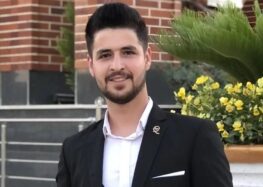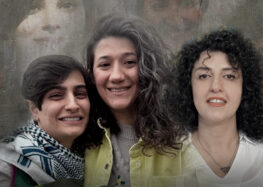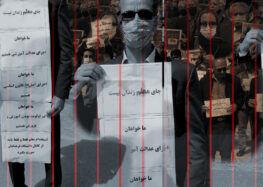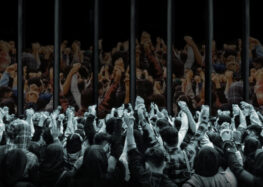40 Iranian MPs Call for Immediate Release of Detained University Students
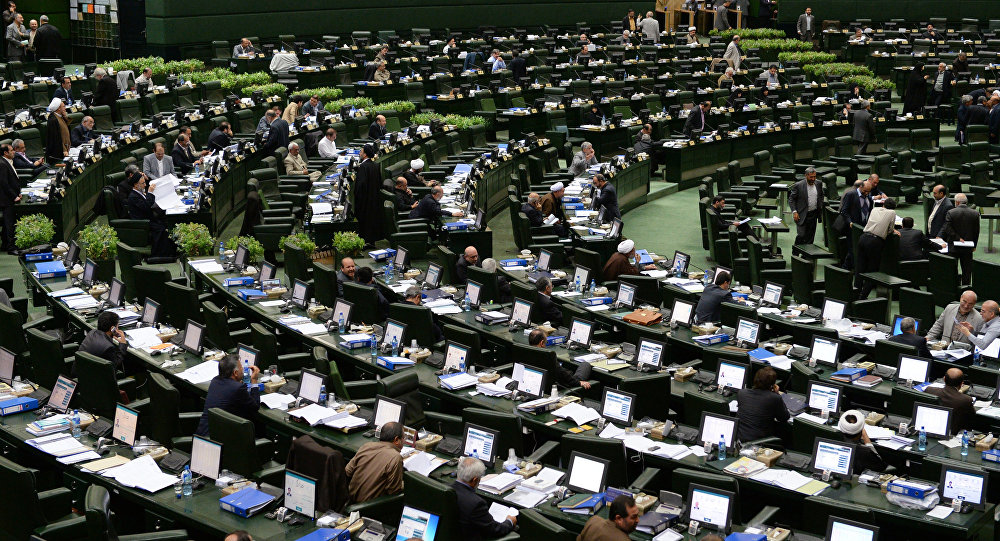
Forty Iranian lawmakers have written to President Hassan Rouhani and Judiciary Chief Sadegh Larijani urging them to immediately release student detainees who were arrested during the weeklong protests that hit several Iranian cities on December 28, 2017.
Member of Parliament (MP) Ghasem Mirzaei Nikoo told the semi-official Iranian Labor News Agency (ILNA) on January 16, 2018, that the lawmakers were particularly focused on the release of female university students.
The two letters, one addressing the president and the other the judiciary chief, have not been made public but according to Nikoo, they state in part: “According to reports given to MPs in a closed parliamentary session on January 7, [2018], if recent bitter events are not analyzed and closely dissected, they could harm our national interests.”
Continued the MPs: “In order to prevent discontent from spreading, the security and law enforcement forces carried out numerous arrests. While we are thankful for their efforts, it appears that prolonged detentions, especially of the students and particularly the female students, will lead to many problems.”
“Therefore, we beseech you to take steps to end the detention of students as soon as possible,” wrote the MPs.
On January 15, Parvaneh Salahshouri, a reformist MP and the leader of the women’s block in Parliament, said the State Prisons Organization was responsible for the detainees’ well being.
“Every day we see the name of a new victim being published,” said Salashouri. “This has caused great concern among MPs and we intend to visit the prisons as soon as possible.”
Salashouri told reporters that she didn’t have exact casualty figures, adding, “Lawmakers have said they will look into all cases involving deaths, including Sina Ghanbari and others such as Saro Ghahremani, to find out how they really died.”
Reformist MP Mahmoud Sadeghi told Etemad Online on January 14 that he believed “about 110 students” had been detained as of January 8 and “at least 60” had been released since then.
MPs Requests to Visit Prisons Denied
A week and a half before the MPs sent the letters, the judiciary and Intelligence Ministry turned down requests by several lawmakers from Tehran to visit detainees held in Evin Prison. But the hardline head offices did agree to an inspection of the prison by the Parliamentary Legal and Judicial Affairs Committee.
“We will definitively carry out an inspection of the facility where the detainees from the recent unrest are being held and talk with the suspects,” said the committee’s deputy chairman, MP Mohammad Kazemi, on January 16.
At a press conference on January 14, Judiciary Spokesman Gholam-Hossein Mohseni Ejei claimed that based on reports by the Intelligence Ministry and the Islamic Revolutionary Guard Corps (IRGC), 622 people were arrested between December 28 and December 31, 400 of which remain in detention, including 55 in Tehran.
On January 9, MP Sadeghi stated that 3,700 had been arrested across the country but did not provide a date range or the source of the figure.
At the press conference, Ejei added that one of the detainees is a dual national who was arrested “as he was taking pictures and filming” the street protests. Ejei did not reveal the person’s name or where he was arrested.
Ejei also expanded on Supreme Leader Ali Khamenei’s claims that external forces fomented the protests.
“There were individuals based abroad who encouraged and instigated the riots through cyberspace and other means,” said Ejei. “We intend to pursue them through Interpol.”
He continued: “We were expecting these events but not on this scale or at this time. We predicted something on a smaller scale and at a later time. We had held meetings with prosecutors and advised them to be prepared for disturbances in mid-February to early March [2018].”
Ejei also addressed a question about establishing a permanent space for public protests in Tehran: “In selecting such a space it is important to ensure there would be no public disturbances. If people follow the law, they can hold gatherings. Following the law would solve 99 percent of the problem, if not 100.”



